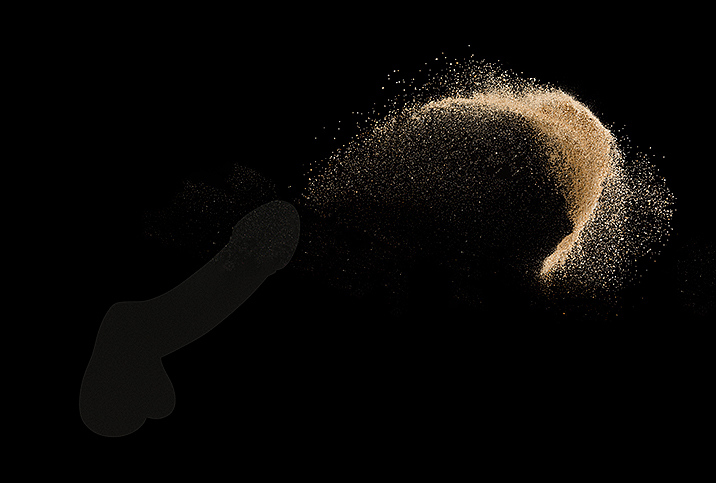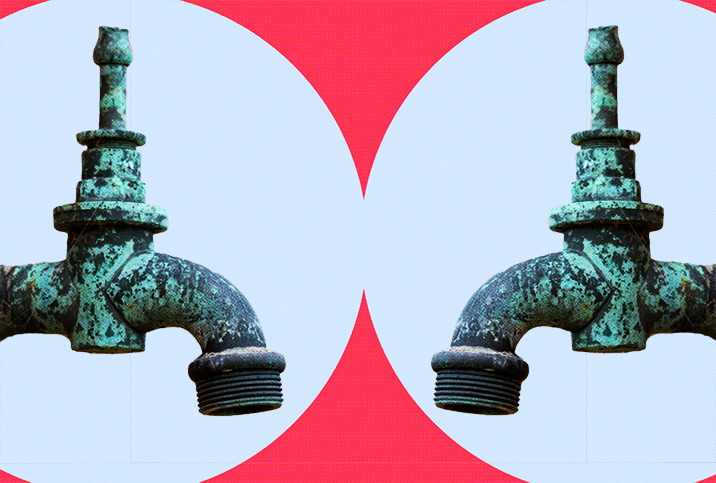Having Dry Orgasms? Get Checked for Retrograde Ejaculation

Retrograde ejaculation describes what happens when a man's ejaculate does not expel through his urethra and out of the penis but instead enters the bladder. This results in dry orgasms, meaning ejaculation emits little to no semen during climax.
Though it's relatively uncommon, retrograde ejaculation can impact a man's sexual health if the condition persists.
Mechanics of retrograde ejaculation
To better understand why retrograde ejaculation occurs, it's helpful to learn about how ejaculation normally works.
During a man's orgasm, sperm travels to the urethra through a tube called the vas deferens. Once the sperm reaches the beginning of the urethra, it is mixed with fluid from the seminal vesicles and the prostate to create ejaculate, which travels through the urethra and out of the penis.
When semen makes its way out of the ejaculatory ducts (which travel through the prostate), the muscle at the opening of the bladder tightens to prevent ejaculate from entering the bladder as it goes through the urethra. This muscle, known as the bladder neck, or internal sphincter, is what keeps urine in your bladder until you urinate.
Retrograde ejaculation occurs when the bladder neck muscle doesn't tighten properly and sends the ejaculate into the bladder rather than through the urethra and out of the penis. According to the Mayo Clinic, this condition isn't harmful and is usually only treated if a man wants to restore fertility.
What causes retrograde ejaculation
Retrograde ejaculation can be caused by certain surgeries, the side effects of medications, nerve damage and more.
Bladder neck surgery, prostate surgery or surgery to treat testicular cancer can cause retrograde ejaculation. Some medicines used to treat high blood pressure, prostate enlargement or depression can also cause retrograde ejaculation.
The Mayo Clinic reports nerve damage caused by medical conditions such as diabetes, multiple sclerosis, Parkinson's disease or spinal cord injury can lead to retrograde ejaculation.
It's important to note that while dry orgasm is the biggest sign of retrograde ejaculation, dry orgasm may be caused by a different condition altogether. For instance, men who have had their prostate or bladder removed experience dry orgasm caused by their procedures rather than retrograde ejaculation. Dry orgasm can also be a symptom caused by cancer treatment in the pelvic area.
Treatment options
If a medication is causing your retrograde ejaculation, treatment could be as simple as asking your doctor to adjust your dose or put you on a different medicine.
In cases where retrograde ejaculation is caused by nerve damage, your doctor may be able to prescribe medication to help improve the function of your bladder neck muscle, which will reduce the problem. Men who have the condition as a result of surgery, however, may find that drugs typically won't help.
Since retrograde ejaculation isn't harmful on its own, many men seek treatment only if they're trying to get their partner pregnant. A variety of infertility procedures can be performed to help a man with retrograde ejaculation conceive. One such procedure allows the doctor to retrieve sperm from the bladder and then process it in a lab to be used for intrauterine insemination (IUI).
If you're experiencing retrograde ejaculation and looking to get your partner pregnant, don't hesitate to consult your doctor. If fertility isn't a concern for you, rest assured retrograde ejaculation may be different from the norm, but it is not harmful to your overall health.
















